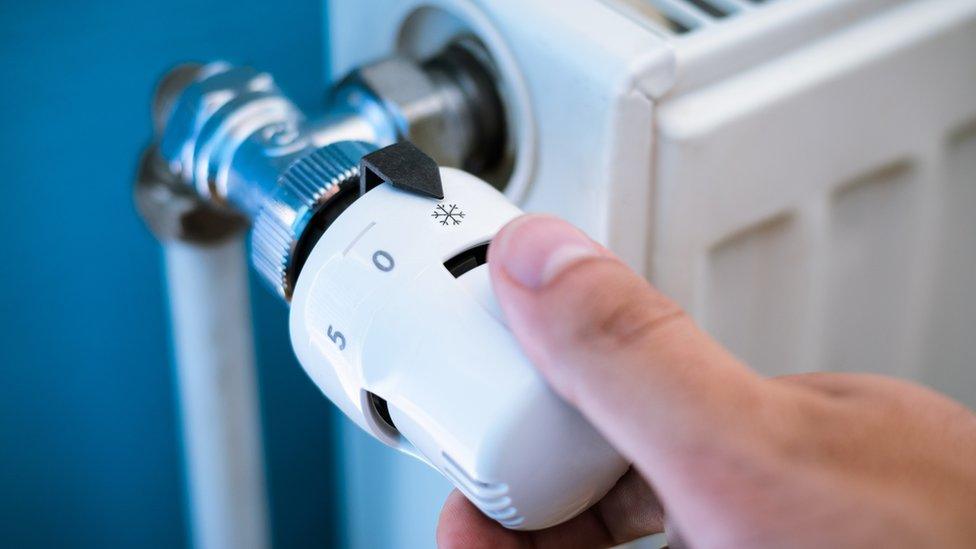Energy bills: Millions of people facing higher bills
- Published
- comments

You might notice adults talking about the price of gas and electricity.
From today, people will have to pay a lot more for the energy they use as prices rise around the world.
The UK government has said that the price of energy will be limited to a set amount and there will be a one off reduction to people's fuel bills to try and stop them getting into difficulty with money.
Even with those measures, bills are likely to be much more expensive than they were at this time last year.
But what's happening and why? Keep reading to find out more.
What's happening from today?
The new energy price cap means gas and electricity bills will rise from today
Every household pays for the energy it uses.
From 1 October, gas and electricity bills are going up as the new energy price cap takes effect.
The price cap is the maximum amount that energy companies can charge for the use of gas and electricity.
The prices that companies can charge is set by the regulator.
There are regulators for lots of things (including schools), the regulator for energy companies is called Ofgem - which stands for The Office for Gas and Electrical Markets.
Over the summer Ofgem announced that the current energy price cap will rise from October, meaning energy companies can charge more and the average yearly cost for homes will now go up.
The change means that around 18 million people will pay an extra 拢530 a year on their energy bills - from 拢1,971 to 拢2,500 per year.
This is an increase of 27%.
Households on prepayment meters will pay slightly more.
This is estimated on how much an average household uses. Each household's bill will still depend how much energy is used.
Ofgem sets the maximum price energy suppliers in England, Wales and Scotland can charge households for each unit of gas or electricity.
In Northern Ireland, the energy market is regulated differently from the rest of the UK.
Instead of setting a price cap for all the energy companies together the regulator looks at what each company individually wants to charge, and either says yes or no.
What help is being offered to people?
Liz Truss announced plans to help households with rising energy prices
Last month, the UK's new prime minister Liz Truss laid out her government's plans to limit the rise of energy bills for households.
This is because the energy price cap was originally due to rise to 拢3,549 in October and there were worries that many households would have struggled to pay their bills.
Ms Truss announced that that the typical household energy bill would be capped at 拢2,500 a year for the next two years, from 1 October.
The prime minister said the price cap on energy bills would be introduced in addition to a one off 拢400 discount which all households in the UK are due to receive from October.
Ms Truss also announced a new six-month scheme for businesses, including charities and public sector organisations, which will provide "equivalent" support.
Why is the price of fuel going up?
Energy companies are getting more money for their oil and gas
The cap being increased is good news for energy firms, who have been struggling due to the increase in prices around the world for them to buy gas.
This change will allow them to pass some of that cost on to customers.
There are several reasons for this, including an increase in demand for fuel as the world emerges from the coronavirus pandemic and also because of the uncertainty after the war in Ukraine affected gas supplies from Russia - the world's largest exporter of gas.
The boss of the energy watchdog Ofgem says the price of energy has reached record levels due to Russia's invasion of Ukraine and it "has no choice, but to reflect these cost increases in the price cap".
